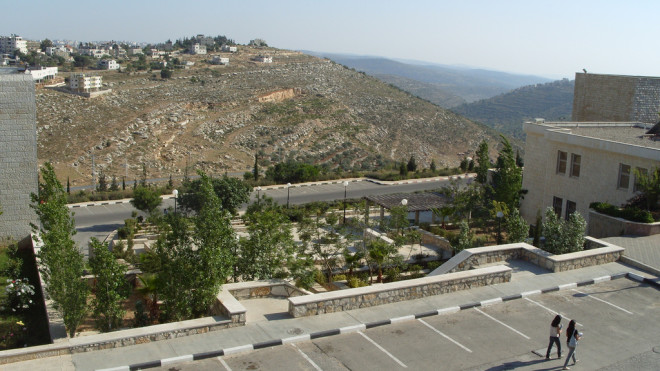An Open Letter to Chancellor Wrighton
BY HENRY CLEMENTS
Dear Chancellor Wrighton,
I feel disappointed rather than assured by your recent email regarding the boycott of Israeli academic institutions. Not everyone in the Washington University community opposes the boycott. Some of us endorse it.
The statement you included in your email asserts that “a boycott of academic institutions directly violates academic freedom, which is not only one of our university’s fundamental principles but one of American higher education in general.” This framing of the boycott is not only reductive of the larger movement, one which works to end the Israeli Occupation, but also implies that our university values Israeli academic freedom more highly than that of the Palestinians.
Anyone who even superficially studies Palestine and Palestinian history is immediately confronted by numerous instances of infringement upon academic freedom. It comes with the territory. This past summer I studied at Birzeit, a venerable Palestinian university founded in 1924. It is located just outside of Ramallah in the West Bank. There, academic freedom is hard to come by. Birzeit’s campus is less than 13 miles from Jerusalem, where many of the university’s students live. But, because of the Qalandiya checkpoint— the congested, unyielding and Israeli-operated barrier located along the only route from Jerusalem to Birzeit—it generally takes students between 90 minutes and two hours to commute to campus for class. Some students have reported commutes of up to four or five hours on days when the checkpoint is particularly strict. Students from Gaza cannot hope to attend Birzeit University anymore; whereas in 1999 there were some 350 Palestinians from Gaza studying at Birzeit, just six years later there were only 35, a result of the Israeli travel ban. This pressure is not confined to students alone. The university president Hanna Nasir was deported by Israel in 1974 and was not allowed to return until 1993.

Worse still, as of this summer, there were 76 Birzeit students being held in Israeli jails under “administrative detention,” or the arrest and detention of Palestinians without trial, purportedly for security reasons. Student-prisoners are not informed of the charges against them. Rather, the Israeli authorities cite “secret evidence” as justification for their imprisonment.
Since the beginning of the occupation, 24 Birzeit students have been shot and killed by Israeli Occupation Forces.
Some may argue that this bleak reality is the unfortunate collateral damage of a necessary military occupation. My mother’s experience in Palestine this past summer, though, suggests that this is in fact part of a larger plan to destroy Palestinian intellectual life and Palestinian institutions. My mother is a professor of history at Princeton University. She traveled to the West Bank in July both to visit me and also to discuss the donation of a private library in the US to Birzeit University. She met with Maher Al Hashweh, a professor of education and a graduate of Stanford. While he welcomed the possibility of this donation, Dr. Hashweh explained to us the realities of trying to get books to Birzeit. In addition to exorbitantly strict and time consuming Israeli packaging requirements, books are often held in customs for months, during which time Birzeit would be charged for the storage. By the time the books reach campus, the cost to the university would be enormous.
The boycott of Israeli academic institutions is not simply an expression of moral dismay with Israeli policy in the Occupied Territories. It is a means to an end. Israeli academic institutions are complicit in the state’s settler colonial policies. As the ASA duly notes on their website, “not a single Israeli academic institution has petitioned the Israeli government to protect Palestinian rights to education.” Some feature special programs for military training for the Shin Bet, the intelligence organization notorious for the use of torture. Other universities maintain close relations with Israeli weapons manufacturers, often directly researching and producing military technology. The boycott is a response to Israel’s military-industrial-academic complex that prolongs the Occupation, one that actively infringes upon Palestinian academic freedom as well as human rights. I believe that an end to the Occupation is the only way to preserve academic freedom for everyone in both Palestine and Israel. This is the logic of the boycott, and I endorse it.
Sincerely,
Henry Clements
Washington University Class of 2014